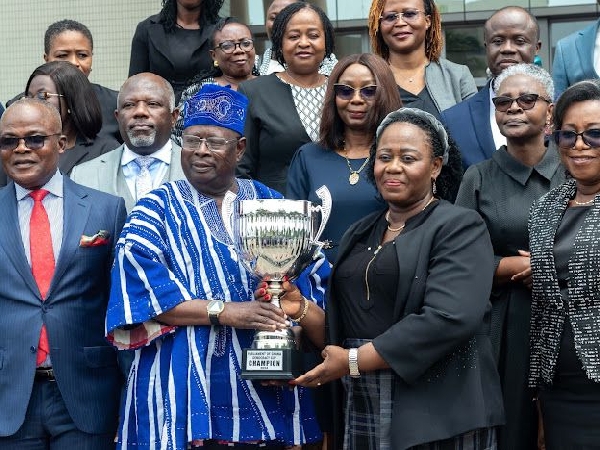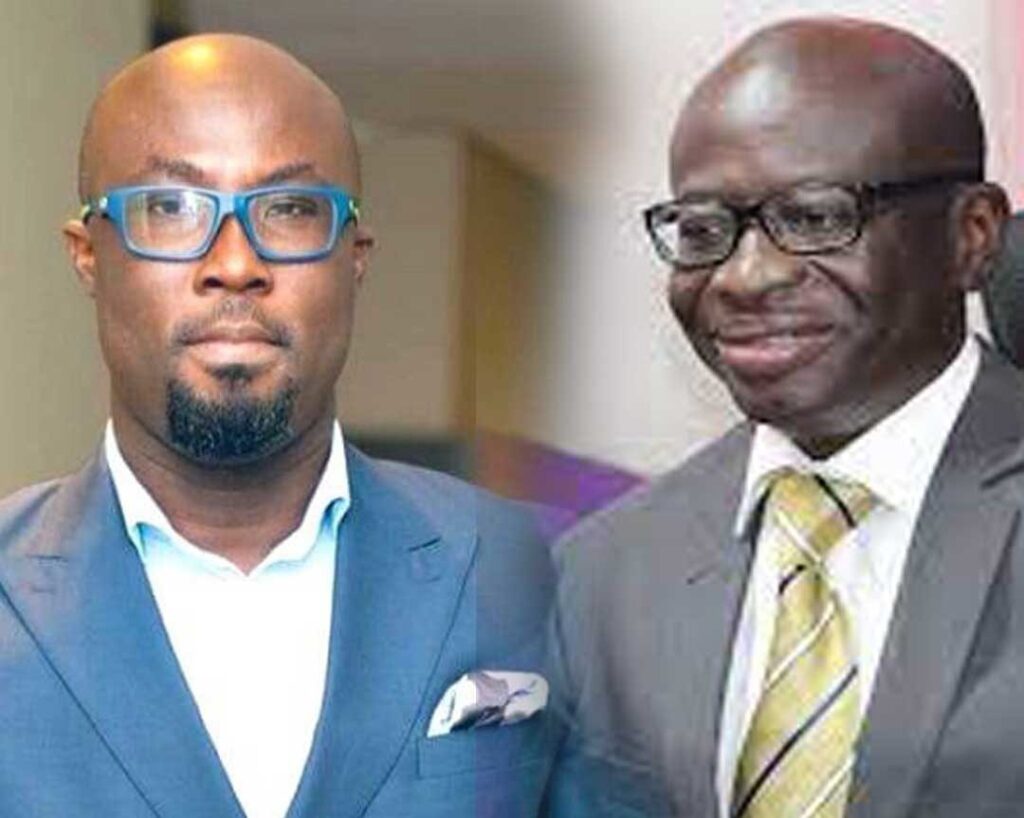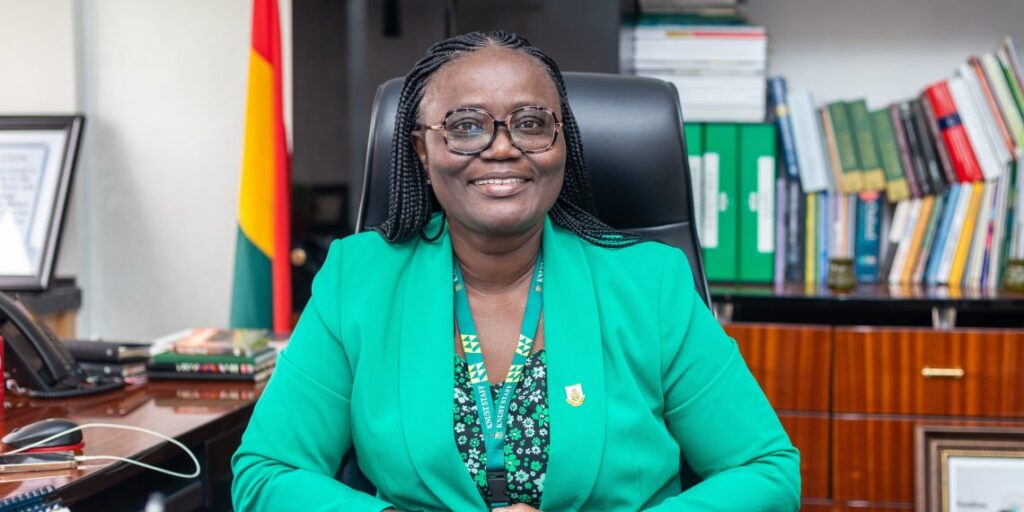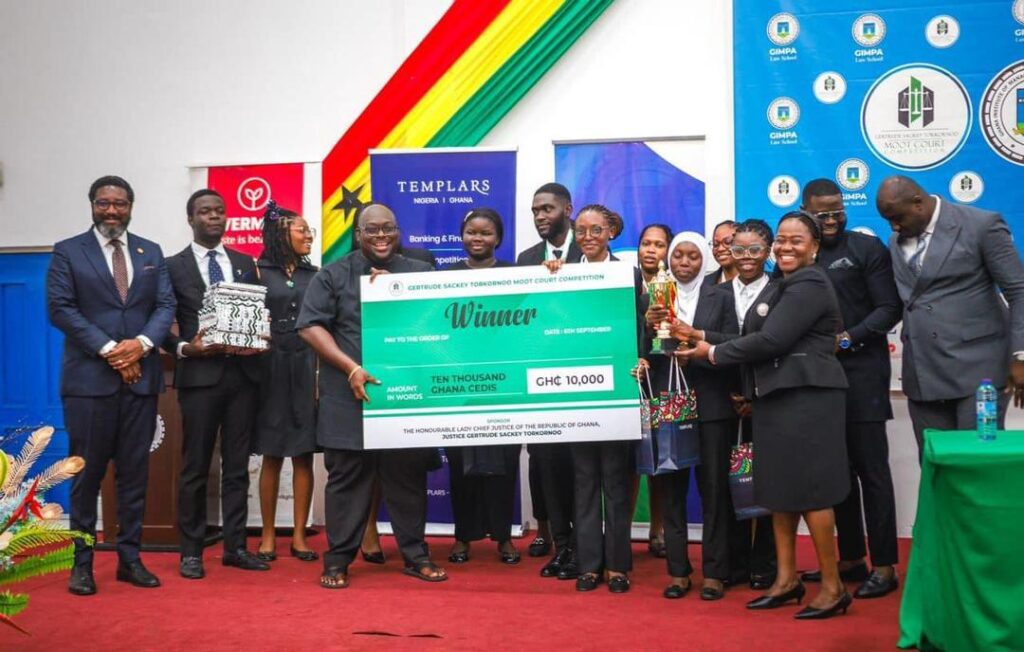The Chief Justice Gertrude Torkornoo has filed an interlocutory injunction at the Supreme Court seeking to halt the work of the five-member committee established by President Mahama to inquire into the three petitions against her removal from office.
In the suit filed on May 21, 2025, and sighted by 3News, Justice Gertrude Torkornoo is praying the court for an order to restrain the Committee from taking any action in connection with the prima facie case determined against her.
ertrude Torkonoo also wants the court to restrain Justice Gabriel Scott Pwamang and Justice Samuel Kwame Adibu-Asiedu from participating in the proceedings of the Committee established to inquire into the petitions against her.
In her notice of motion, the suspended Chief Justice is seeking the court to issue an order to quash her suspension which was issued by President Mahama in accordance with the constitution.
“An order restraining the committee set up by the President to inquire into the three petitions against the plaintiff, composed of the 2nd, 3rd, 4th, 5th and 6th defendants, from proceeding with an inquiry, the execution of the terms of reference of the committee or taking any action in connection with the purported determination of a prima facie case made against the plaintiff until the hearing and final determination of the instant action;
“An order restraining the 2nd and 3rd defendants/respondents from presiding over or participating in proceedings of the committee appointed by the President to inquire into three petitions purportedly presented for the removal of the plaintiff as Chief Justice of the Republic until the hearing and final determination of the instant action,” the statement of claim highlighted.
“An order suspending the operation of the warrant for suspension of the Chief Justice purportedly issued by the President under article 146(10) of the Constitution, 1992, until the hearing and final determination of the instant action.”
“Any further order(s) at to this Honourable Court may seem meet,” the suit stated.
The suit names the Attorney-General and Minister of Justice, Justice Gabriel Scott Pwamang, Justice Samuel Kwame Adibu-Asiedu, Daniel Yao Domelovo and other members of the Committee as defendants in the case.
President Mahama on April 22, 2025 in accordance with Article 146(6) of the Constitution and in consultation with the Council of State suspended the Chief Justice, Gertrude Torkonoo after a prima facie case was established against her.
The President further established a five-member committee in compliance with Article 146(6) of the Constitution and in consultation with the Council of State to inquire into the petitions submitted to the President.
The committee comprised of;
1. Justice Gabriel Scott Pwamang, Justice of the Supreme Court – Chairman
2. Justice Samuel Kwame Adibu-Asiedu, Justice of the Supreme Court – Member
3. Daniel Yaw Domelevo (Former Auditor-General) – Member
4. Major Flora Bazwaanura Dalugo (Ghana Armed Forces) – Member
5. Professor James Sefah Dzisah (Associate Professor, University of Ghana) – Member
The suit by the Chief Justice comes after the Supreme Court, by a 4-1 majority decision dismissed an application filed by the Centre for Citizenship, Constitutional and Electoral Systems (CenCES) seeking to halt the impeachment process initiated by President John Mahama against Gertrude Sackey Torkornoo.
The court, presided over by Acting Chief Justice Paul Baffoe-Bonnie, ruled that the application lacked merit. Justices Baffoe-Bonnie, Issifu Omoro Tanko Amadu, Yonny Kulendi, and Henry Anthony Kwofie formed the majority, with Justice Yaw Asare Darko dissenting.
This ruling, delivered on Wednesday, May 21 marks the second time the Apex court has rejected an attempt to freeze the ongoing impeachment proceedings.
A similar application was earlier filed and dismissed in a case brought by Old Tafo-Pankrono MP, Vincent Ekow Assafuah.
CenCES, a civil society organization, filed a writ at the Supreme Court challenging the constitutionality of the process being used to remove the Chief Justice.
The group argued that the manner in which the President had proceeded violated key principles of due process and contravened several provisions of the 1992 Constitution.
CenCES sought an injunction to suspend the work of the five-member committee currently probing the petitions against the Chief Justice until the court delivers a final judgment on the substantive constitutional issues raised in their suit. However, the Supreme Court, by majority ruling, allowed the impeachment process to proceed.
Injunctions Under the Law
An injunction is a court order requiring an individual to do or omit doing a specific action. It is an extraordinary remedy that courts utilize in special cases to alter or maintain the status quo, depending on the circumstances, particularly where the defendant must stop its course of action to prevent possible injustice and irreparable harm to the plaintiff. Injunctive relief is a discretionary power of the court, in which the court balances the irreparability of harm and inadequacy of damages if an injunction were not granted against the damages that would result if an injunction was granted. Thus, the mere fact that one comes before a court seeking an injunction does not mean that it will be automatically granted. The courts have on countless occasion stated that the position of the law is that, where a case falls under public law, a court ought to be slow in granting interlocutory injunction. The court is required to balance the public interest against the interest of the applicant.
To this end, the Supreme Court stated the succinct statement of the law on interlocutory injunctionsby Dr. Date-Bah JSC in the case of Welford Quarcoo v Attorney-General [2012] 1SCGLR 259. At page 260 of the Report the respected jurist delivered himself as follows;
“It has always been my understanding that the requirements for the grant of interlocutory injunctions are: first, the applicant must establish that there is a serious question to be tried; secondly, that he or she would suffer irreparable damage which cannot be remedied by the award of damages, unless the interlocutory injunction is granted; and finally that the balance of convenience is in favour of granting him or her the interlocutory injunction. The balance of convenience of course means weighing up the disadvantages of granting the relief against the disadvantages of not granting the relief. Where the relief sought relates, as here, to a public law matter, particular care must be taken not to halt the action presumptively for the public good, unless there are very cogent reasons to do so, and provided also that any subsequent nullification of the impugned act or omission cannot restore the status quo”.
In essence, unless one can clearly establish that there is a serious question to be answered and that he or she would suffer an irreparable damage which cannot be remedied by the award of damages and finally, that the balance of convenience is in favour of granting him or her the interlocutory injunction. It is through these three lenses that Her Ladyship’s injunction application will be determined by the Supreme Court whether in deciding whether to grant it or not




